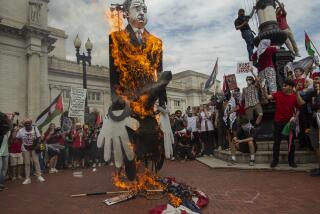Global Development: These young people are fighting for the Democratic Republic of Congo to live up to its name
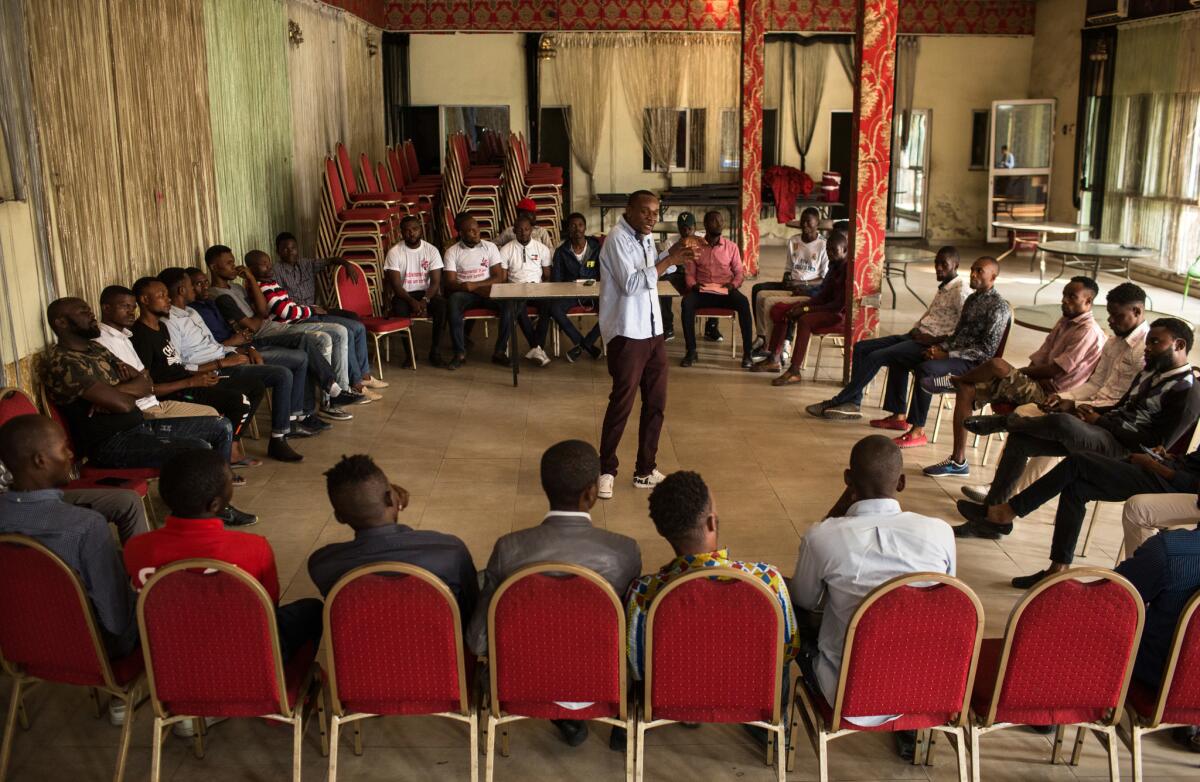
- Share via
Reporting from Kinshasa, Congo — When Alain Mulumba Kabeya was considering joining the pro-democracy movement three years ago, a friend who recruited him had a question: “Are you ready to die for others?”
It wasn’t an idle inquiry. Since 2015, security forces in the Democratic Republic of Congo have killed nearly 300 people at political protests, according to Human Rights Watch. Activists are routinely arrested, beaten and imprisoned. The friend who questioned Kabeya’s commitment, Carbone Beni, was sentenced last month to a year in prison.
“Anything is possible when you challenge a dictatorial regime,” said Kabeya, 28. “You can be kidnapped, you can lose your job, which I faced. You can be abandoned by your family.”
Despite those risks, networks of young activists across the country are leading a peaceful movement for democracy that is galvanizing some citizens to press for change. In a country plagued by armed rebel groups, corruption and authoritarian rulers, they engage communities by protesting government failures that directly affect citizens’ lives, like lack of access to clean water and garbage disposal.
Their demands for government accountability run from municipal authorities all the way to President Joseph Kabila, who flouted the constitution by staying in power past term limits.
Kabila recently announced that he would step down. But activists see signs the government is planning to stage-manage the December election to make sure Kabila’s close ally comes out on top. They are demanding credible elections in a country that has not seen a peaceful transfer of power since it gained independence from Belgium in 1960, and has been riven by conflict since a civil war at the turn of the 21st century killed millions.
“We, the youth, have to stand up,” said Kabeya. “We are helping the population to understand you have the power to say, ‘Stop, Mr. President, Mr. Senator, because you are not respecting the rules of the game. You did not answer to the aspirations of the people. So your place is no longer here. Leave.’”
In an interview, Minister of Communications Lambert Mende called pro-democracy activists “a danger for the future of this country” who were “working as mercenaries of others abroad.” He denied that the government arrests activists for criticism or protests.
“I don’t know if in ... sub-Saharan Africa you can find a country where people are openly speaking like in Congo,” he said. “Every day [they are] abusing the government, abusing the president.”
The young activist groups are a relatively new force in Congo. Filimbi, the group that Kabeya was recruited to join, was formed in Kinshasa in 2015. One of the largest groups, known as LUCHA, started in the eastern city of Goma in 2012.
The organizations proliferated in the lead-up to a potential turning point in Congo’s history, as opposition groups tried to ensure that Kabila, who has ruled for more than 17 years, left power when his mandate expired in 2016. But he repeatedly postponed elections, and many feared he would delay again this year, or run for a third term.
The August announcement that he would not be a candidate was a welcome surprise, but the opposition is unsatisfied with plans for the vote. They want the electoral commission to cancel plans to use electronic voting machines they fear could be used for fraud, and also to reverse decisions disqualifying the most formidable opposition candidates. The political instability has already fueled violence across the country, and an election seen as illegitimate could further fan the flames of conflict.
But the political opposition is divided, and many Congolese have lost trust in politics. Despite Congo’s vast mineral wealth, its people are among the poorest in the world, and corruption is rampant. Citizen activists present a clear contrast to politicians: They have none of the trappings of wealth and do not seek power. That’s enabled them to gain trust and build grass-roots movements.
While the groups are not usually capable of large-scale mobilization — large protests against Kabila’s power grab this year were organized by the Catholic Church, and joined by pro-democracy activists — they have focused on educating citizens about their rights and encouraging them to become politically engaged.
“I think the real importance is a symbolic one,” said Jason Stearns, director of the Congo Research Group, an independent, nonprofit organization based at New York University. “For decades, politics in the Congo has developed a very dirty connotation. … What LUCHA is really trying to do is they’re trying to pioneer a different way of civic engagement in the Congo.”
The numbers may be small, he said, but “people are watching, and it’s having an impact on the Congolese psyche.”
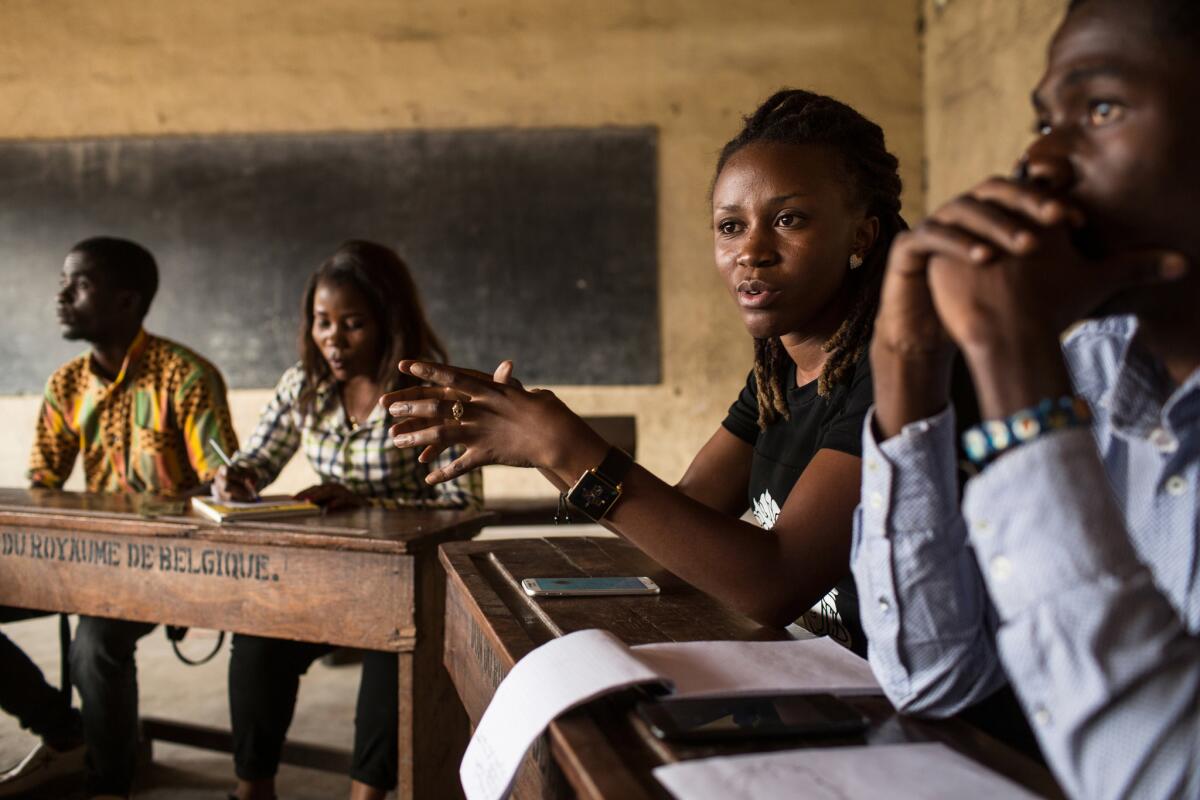
For Eunice Etaka, the desire to get involved came after a personal brush with injustice. When her father, a police officer in Kinshasa, refused to carry out orders he believed were illegal, he was repeatedly arrested, and finally suspended, Etaka said. Soon after, he suffered a stroke that left him partially paralyzed and unable to speak — a result, she said, of the stress of losing his job.
That was a turning point for Etaka. She transferred universities to major in law, so she could “defend people who are voiceless.”
“I didn’t want to get into a political party that works only to earn positions in the government,” she said. “I wanted to join a movement that was pure citizenship, where you work for common causes.” She joined Lutte Pour le Changement, or Struggle for Change, the group known as LUCHA.
On a recent Saturday morning, she joined a dozen LUCHA members at the edge of a large square in the Limete neighborhood of the capital. The activists wore white T-shirts emblazoned with the group’s signature green arrow. Men weaving rattan chairs stopped to watch as the activists hung a Congolese flag and got to work shoveling muck-covered garbage from a concrete channel carrying wastewater. They were highlighting the government’s failure to provide a basic public service, and several members stood by handing out fliers about the group to passersby.
LUCHA and Filimbi often carry out projects like this, which frequently attract the attention of police. Etaka, an athletic 25-year-old who wears heart-shaped earrings studded with rhinestones, has been arrested four times, most recently on Sept. 3, when 89 LUCHA activists were detained across the country while protesting the electoral commission’s plan to use voting machines.
“I believe that the December elections will all depend on what we do,” she said. “Because with what we’ve done, we’ve gotten some victories. So if we don’t get tired, and keep fighting, we’ll get what we want.”
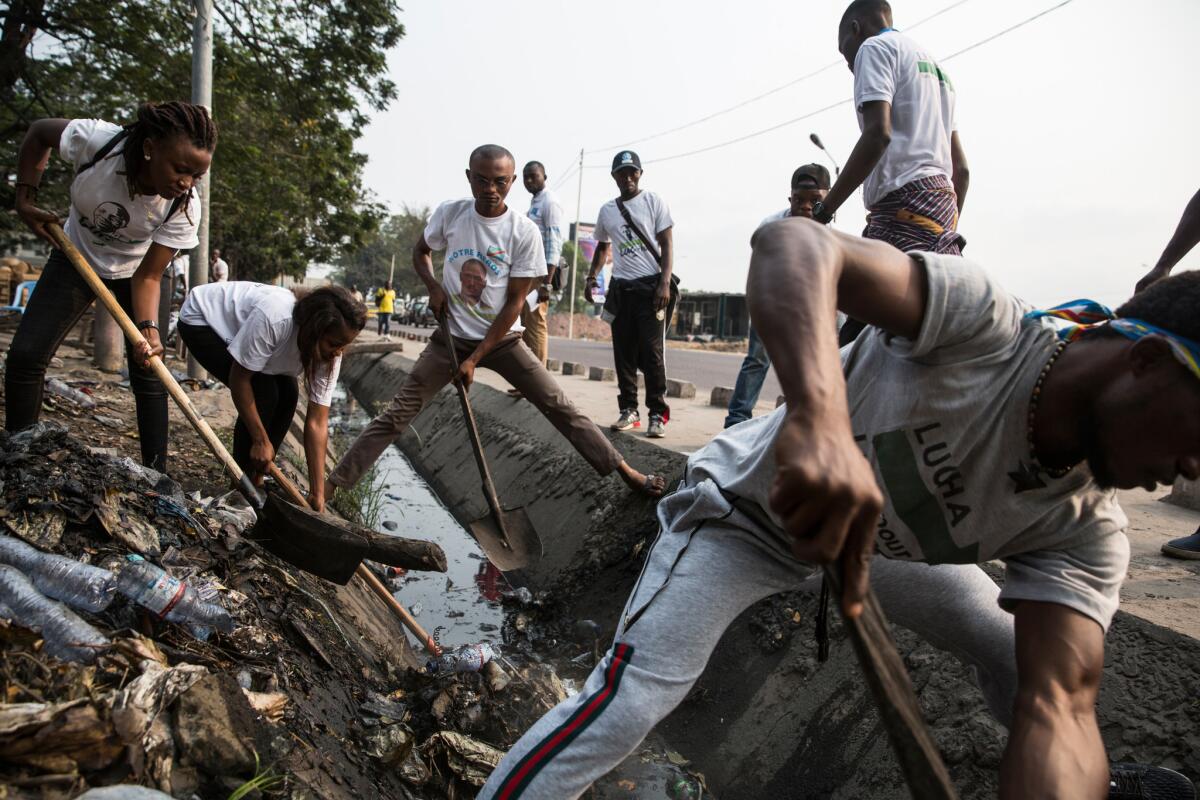
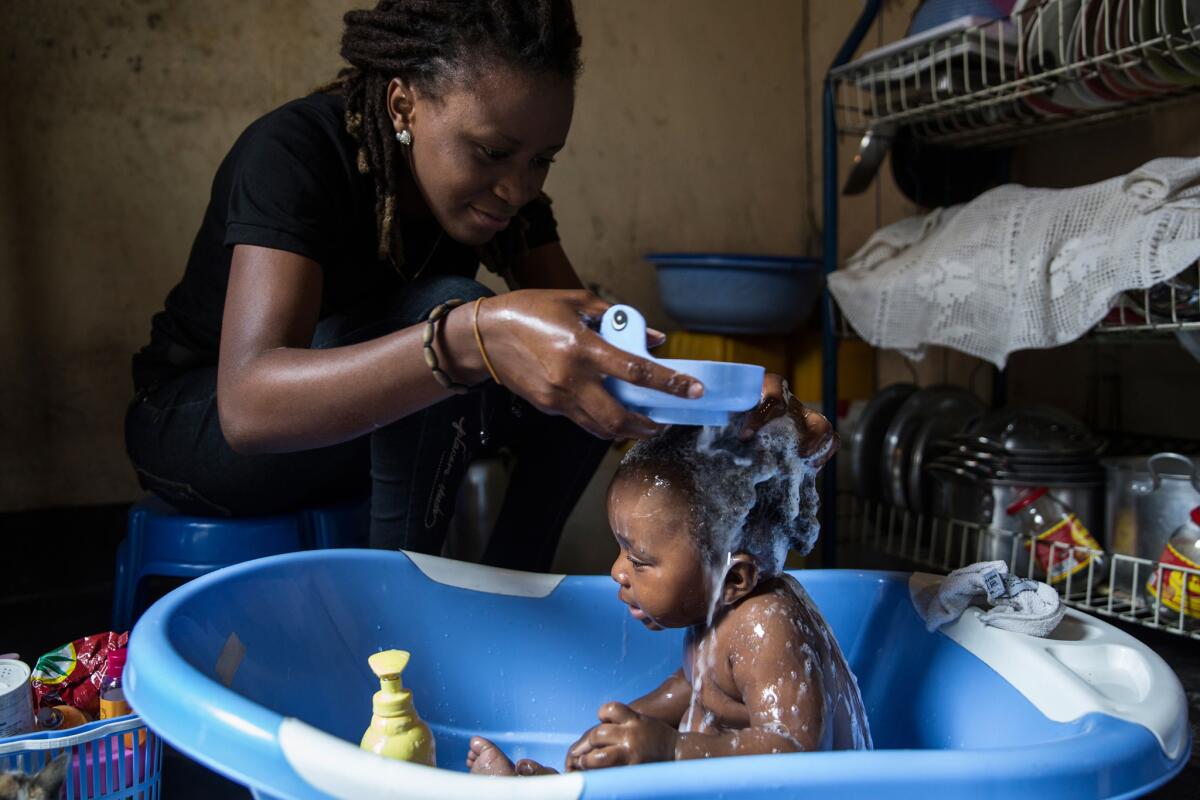
Felicien Kabamba, a professor of political science at the University of Kinshasa, said the government is wary of the activist groups, particularly after protest movements in Senegal and in Burkina Faso, where protests forced the resignation of the president in 2014.
Beni, the Filimbi coordinator, was arrested on Dec. 30 while mobilizing Kinshasa residents to protest the following day. He and three other Filimbi activists were convicted in September of “disturbing the public order” and “insulting the head of state” and sentenced to a year in prison. A fifth activist was acquitted.
While Beni is in prison, his friend Kabeya, normally the group’s coordinator for Limete, is overseeing all of Kinshasa. From his tiny one-room apartment in Limete, he said that as long as Kabila is in power, there cannot be a fair vote.
“Maybe there can be elections, but they won’t be credible elections, they won’t be transparent elections, they won’t be the elections the Congolese people are expecting,” he said. “We don’t believe a dictator can organize elections in which he will be the loser.”
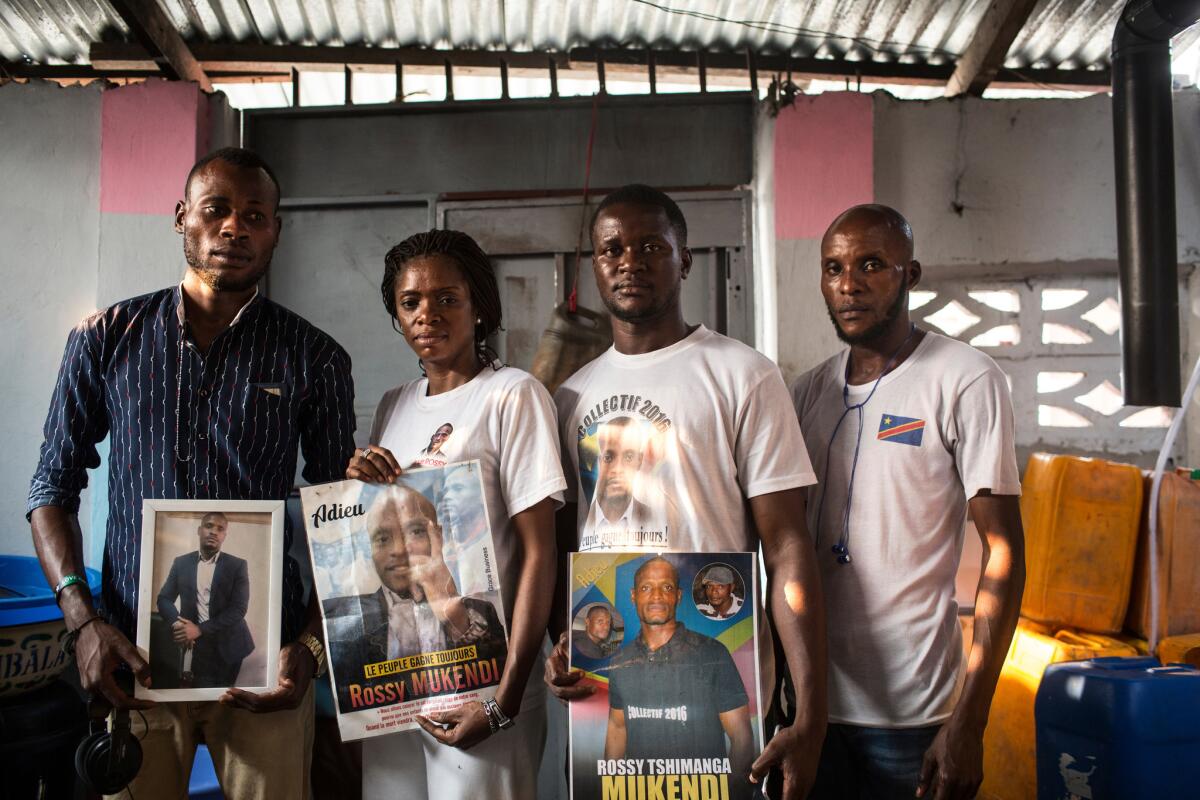
Some of the activists have given their lives for the cause. Rossy Mukendi, founder of a pro-democracy group called Collectif 2016, was shot by police during a protest on Feb. 25.
At his family’s home, his sister Mireille Kanku Tshimanga remembered Mukendi as someone who always stood up for what was right, defending neighborhood kids against bullies as a child. Charismatic and persuasive, he got many of his friends to join him in fighting for the rule of law. He knew how dangerous it was to protest, said Tshimanga, but he was undeterred.
One of Mukendi’s favorite sayings has now become a refrain for the activists: “The people always win.” Tshimanga believes he was right. “Even if it’s not today or tomorrow, but one day his sacrifice will bring change,” she said.
Chick is a special correspondent. Reporting for this story was supported by the International Women’s Media Foundation.
UPDATES:
9:20 p.m.: This article has been updated with comments from Stearns and otherwise revised for clarity.
This article was originally posted at 3 a.m. on Oct. 4.
More to Read
Sign up for Essential California
The most important California stories and recommendations in your inbox every morning.
You may occasionally receive promotional content from the Los Angeles Times.


